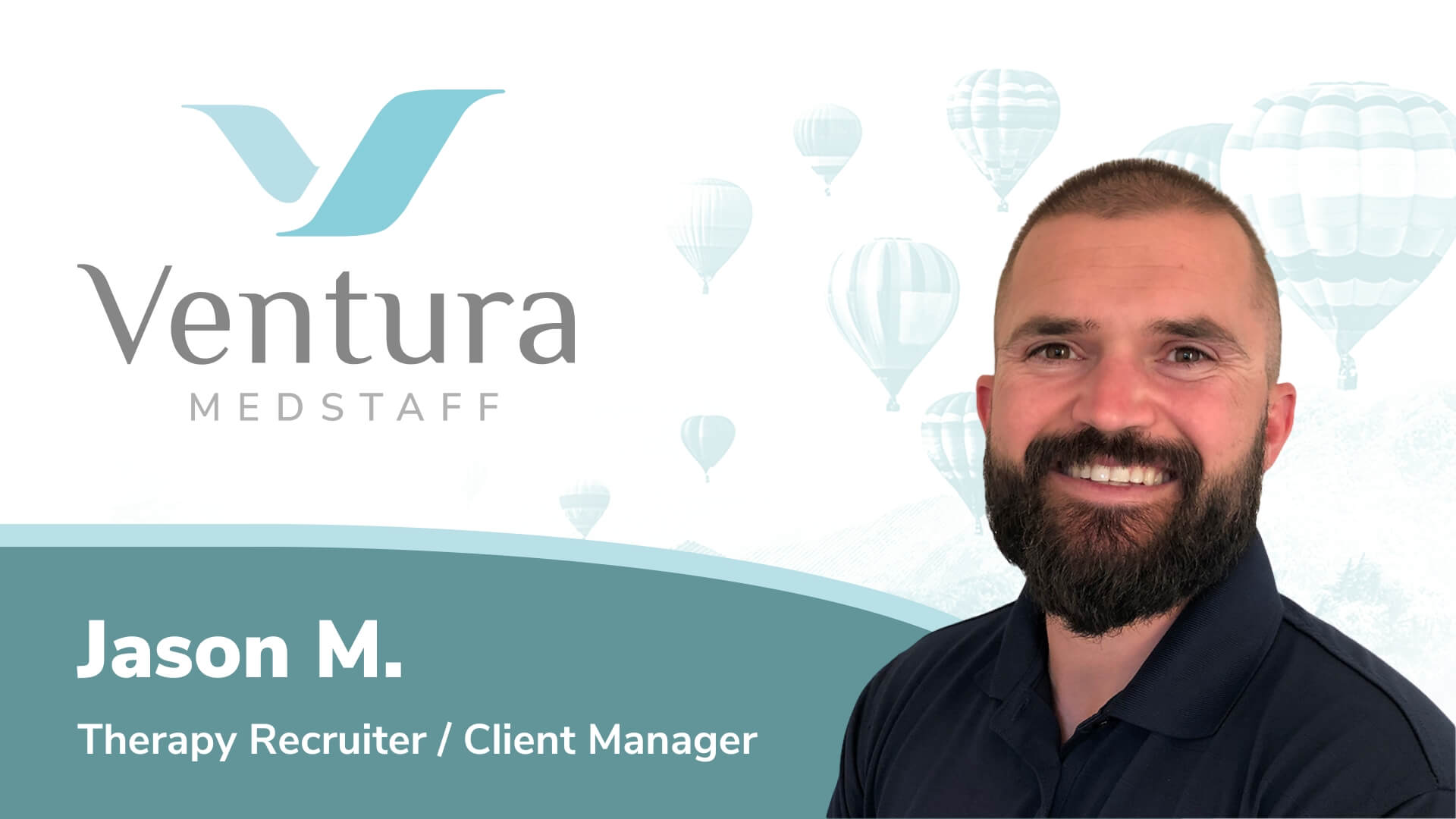Graduation is an exciting time, but it also comes with its challenges. Like what comes next? Luckily, therapy new grads have an advantage, they can become travel therapists right out of school! While that answers the big questions of “what’s next,” it’s completely normal to still feel unsure about the process. That’s why we sat down with Jason, a recruiter who spent years working as a travel therapist himself. Here’s what he had to say and his top advice for new grads ready to explore the world of travel therapy.
What were you most nervous about before your first assignment, and how did it turn out?
“I was most nervous about working in a new setting and being able to effectively treat patients,” Jason shared. “My first contract was in Home Health, and I only had outpatient experience.” But as it turned out, the thing Jason feared the most wasn’t even the biggest challenge. “It turned out WAY better than I thought. I realized very quickly that treating patients was not the hard part or the biggest learning curve – it was learning a new EMR.”
You can always think of things to be worried about, but it’s important to remember that anxiety is not a predictor of the future! It doesn’t do any good to worry about things that may not happen at all. Remember that more often than not, things work out for the best in the end.
Looking back, what do you wish you had known before taking your first travel contract?
Jason’s advice is simple but important: “Relax! It’s not going to be perfect. There will be hiccups. You will make mistakes. Learn from them and move on.” This is true for any job, whether you choose to travel or go for a permanent staff position. As a new grad, especially as you learn the job, it’s normal to make mistakes. Jason reminds us, “At the end of the day, you are there to help patients, which you are doing!”
What factors should therapy new grads consider when picking a location or setting?
Choosing your first travel contract can feel like a lot of pressure, but Jason says it really comes down to one key question during your interview: ask about the support staff and the ramp-up period.
“The number one question every new grad should be asking during an interview is what support staff is there at the facility. The support staff doesn’t have to be the same discipline or in the same position, but you need someone there who is able to answer any questions you have.” Jason emphasizes. He also stresses the importance of asking about a ramp-up period. “Ask how many patients you’ll see the first week, the second week, the fourth week, and so on.” Understanding the support system and realistic expectations can make a world of difference in your experience.
How can therapy new grads build confidence while traveling?
According to Jason, the best way to build confidence is to keep pushing yourself.
“Continue to push yourself into new settings and don’t be afraid to ask questions,” he said. “Every single contract, even if it was in a setting I was confident in, I asked other therapists questions. You run into so many good therapists as a traveler with lots of valuable knowledge. Just ask questions!”
What are some of the benefits of traveling as a new grad?
When it comes down to it, Jason says the best benefits you can gain as a traveling new grad are the pay and experience.
“Most new grads are looking at mid-70s for pay. In travel, a reasonable estimate of pay would be around $1800 weekly after taxes. If you were to make that as a salary, it would be close to $135k–$140k,” Jason explained. This way to can pay off your student loans even faster, all while getting paid to travel the country!
But it’s not just about the money. “Experience. You will gain experience very quickly by learning new settings and learning from new people.” Jason remarks.
What common mistakes or misconceptions do you see new grads have about travel therapy?
One of the biggest myths Jason sees? That new grads can’t travel.
“‘I can’t travel, I’m a new grad’ — MYTH,” Jason emphasized. “We help new grads with travel all the time. As long as they are open-minded, they will succeed.” This myth is why Ventura MedStaff created our Career Support Program. This program supplies new grads with three 30 minute virtual coaching sessions with an experienced clinician mentor to provide one-on-one support. They share their firsthand knowledge of travel healthcare and offer personalized advice before, during, and after your first assignment.
Jason also reminds new grads to manage their expectations: “Don’t get too hung up on getting the perfect location, best setting, with very high pay for the first contract. A priority should be finding a clinic that has a robust onboarding process with other therapists to help answer any questions.”
What’s one piece of advice you give every therapy new grad you work with?
Jason leaves every new grad with this piece of wisdom:
“The first two weeks are going to be stressful. Just know it won’t be stressful for long. By week four, you will be proficient and feel good!”
Travel with Ventura MedStaff
If you’re a new grad thinking about travel therapy, know this: it’s normal to feel nervous, it’s okay to ask questions, and it’s completely possible to thrive. With the right mindset and the right support, your first travel assignment can be the start of an exciting and successful career. Get in contact with a recruiter today to learn more and start looking for your dream assignment!






